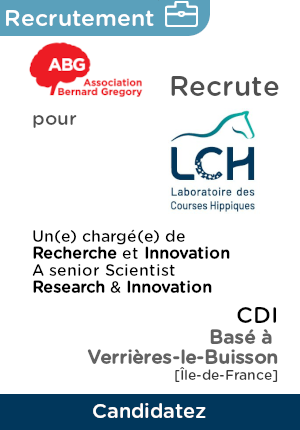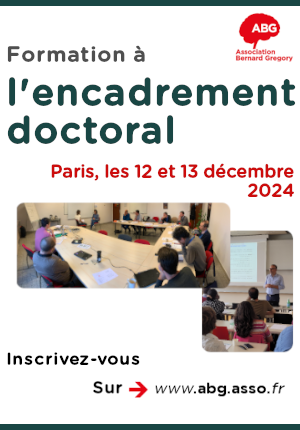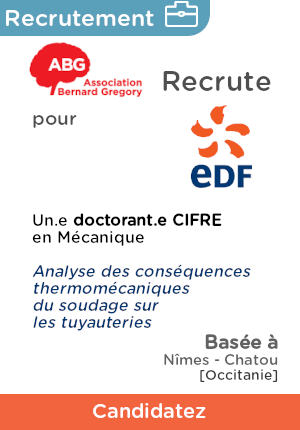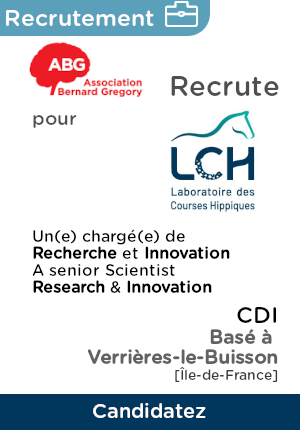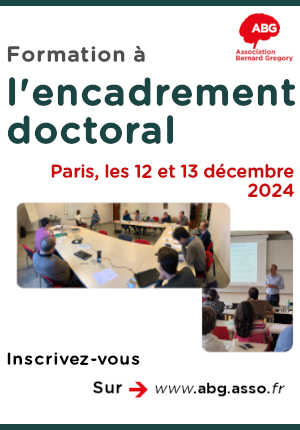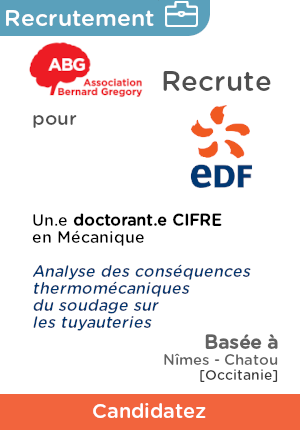Post-doctoral position (24 months): Study of the biodegradation of aromatic compounds in reservoirs of natural gas storages in aquifer using an isotopic approach
| ABG-125023 | Job | Any |
| 2024-07-09 | Fixed-term 24 Month | > €25,000 and < €35,000 annual gross |
- Ecology, environment
- Energy
Employer
- Les travaux de recherche de l’IPREM sont orientés autour du développement d’instrumentations et de méthodes analytiques pour l’analyse de traces, de spéciation (détection, identification et quantification des formes chimiques des métaux et des métalloïdes) et l’analyse isotopique en milieux environnemental et biologique.
- Une partie des activités de recherche du LFCR porte sur des développements expérimentaux nécessaires à la caractérisation des propriétés physico chimiques sous hautes pressions et hautes températures des fluides complexes (huiles, gaz).
- IPREM's research work focuses on the development of instrumentation and analytical methods for trace analysis, speciation (detection, identification and quantification of chemical forms of metals and metalloids) and isotopic analysis in environmental and biological media.
-
Part of the LFCR's research activities focus on experimental developments necessary to characterize physico-chemical properties of complex fluids (oils, gases) at high pressures and temperatures.
Position and assignments
Description of the post-doctoral position:
The management of groundwater quality is a major concern when storing natural gas in aquifers [1]. Especially, the fate of the aromatic compounds BTEX (Benzene, Toluene, Ethylbenzene and Xylenes), contained as traces in the stored gas, and transferred to the water, need to be monitored as they are known to have adverse effects (e.g. [2]). As a key contribution, the monitoring of BTEX natural attenuation by bio-chemical processes through d13C and dD isotope fractionation measurements is very promising [3]. However, it is important to refine the link between isotopic signatures and the studied storage sites according to the reservoir temperatures and heterogeneities (geochemical (mineral assemblage, water composition, …) and petrophysical) and the cycling period (injection vs. withdrawal), for example, to understand why isotopic fractionation is not recorded in the same way within various gas storage reservoirs.
To tackle these issues, researchers of two labs hosted at the Université de Pau et des Pays de l’Adour (LFCR and IPREM) and one French gas storage operator, STORENGY, have developed collaborations and obtained a support to fund a two years Post-Doctoral Research Associate (PDRA) position.
Thus, the recruited PDRA will have to tackle some of the above questions related to the BTEX isotopic fractionation for gas storage in aquifers monitoring. To do so, the PDRA will contribute:
- To maintain the monitoring of BTEX levels and the carbon (d13C) and hydrogen (d2H or dD) isotopic fractionation of these elements in groundwater and natural gas samples for the STORENGY partner, by implementing the analytical methodology, from sampling to detection. The aim will be to supplement the data already acquired and possibly to analyze in greater detail certain natural gas and water samples from underground storage facilities operated by STORENGY. In addition, as the biodegradation of benzene can be coupled with the reduction of sulfates, additional isotopic analyses of d34S of sulphates and sulphides will be carried out on water samples (taken at the wellhead), where these compounds are present in high concentrations, with the aim of discriminating and better understanding their origin (oxidation-reduction processes, biological/chemical formation processes, etc.).
- And mainly to refine the link between the isotopic signatures and the studied storage sites as a function of reservoir heterogeneities. Based on data obtained since 2014 during previous work as well as on the acquisition of new measurements, the aim is to provide answers to the following questions:
- What is the impact of the physical geochemical heterogeneity of the reservoirs on the isotopic signature of d13C and d2H of BTEX?
- Does the isotopic signature of d13C and d2H of BTEX vary with the injection or withdrawal periods at the sites?
- Why is the increase in the isotopic signature over time of certain compounds (such as benzene, for example) not demonstrated at certain active storage sites?
To answer these questions, statistical studies will be also carried out (using principal component analyses, for example) to highlight any correlation between parameters inherent to the different studied storages. Also, simulations using the PhreeqC geochemical software [5] could help to better understand the reaction processes involved.
Depending on the considerations and needs of part 2, more samples could be taken into consideration as very little data has been acquired at certain sites. One of the aims of this study could therefore be to expand the database of gas and water isotopic analyses (part 1).
References:
[1] Hunkeler D., R.U. Meckenstock, B. Lollar, T.C. Schmidt, J.T. Wilson, U.S. Environmental Protection Agency, Washington D.C., 2009.
[2] Aullo T. PhD thesis of the Université de Pau et des Pays de l’Adour, 2013.
[3] Mancini S.A., A.C. Ulrich, G. Lacrampe-Couloume, B. Sleep, E.A. Edwards, B. Sherwood Lollar, Applied and Environmental Microbiology, 191, 2003.
[4] Wanner P., D. Hunkeler, Chemosphere 219, 1032, 2019.
[5] Parkhurst, D.L., and Appelo, C.A.J.. Geological Survey Techniques and Methods, book 6, chap. A43, 497 p., https://doi.org/10.3133/tm6A43.
Geographic mobility:
Telework
Starting date
Profile
Required qualification:
PhD in Geochemistry, Analytical Chemistry, Chemical Engineering, or related domain.
Profile sought:
Candidate capable of developing analytical laboratory protocols, with experience in numerical simulations and/or isotopic geochemistry or motivated to strengthen his/her skills in these fields. Training in the use of the Phreeqc geochemical software may be provided.
Vous avez déjà un compte ?
Nouvel utilisateur ?
Get ABG’s monthly newsletters including news, job offers, grants & fellowships and a selection of relevant events…
Discover our members
 Généthon
Généthon  ADEME
ADEME  Nokia Bell Labs France
Nokia Bell Labs France  Groupe AFNOR - Association française de normalisation
Groupe AFNOR - Association française de normalisation  PhDOOC
PhDOOC  Laboratoire National de Métrologie et d'Essais - LNE
Laboratoire National de Métrologie et d'Essais - LNE  TotalEnergies
TotalEnergies  ONERA - The French Aerospace Lab
ONERA - The French Aerospace Lab  MabDesign
MabDesign  Aérocentre, Pôle d'excellence régional
Aérocentre, Pôle d'excellence régional  MabDesign
MabDesign  SUEZ
SUEZ  Institut Sup'biotech de Paris
Institut Sup'biotech de Paris  CASDEN
CASDEN  CESI
CESI  Tecknowmetrix
Tecknowmetrix  Ifremer
Ifremer  Institut de Radioprotection et de Sureté Nucléaire - IRSN - Siège
Institut de Radioprotection et de Sureté Nucléaire - IRSN - Siège  ANRT
ANRT
-
JobPermanentRef. ABG124941Corteria Pharmaceuticals- Ile-de-France - France

Jeune Docteur, Chercheur en Biologie Cellulaire & Moléculaire (H/F)
BiologyAny -
JobFixed-termRef. ABG125071KTH- Sweden
ERC-funded postdoc position on the detection of gas-phase organic radicals, KTH, Stockholm, Sweden
Chemistry - Physics - Engineering sciencesAny -
JobPermanentRef. ABG123642Laboratoire des Courses Hippiques (GIE LCH)- Ile-de-France - France
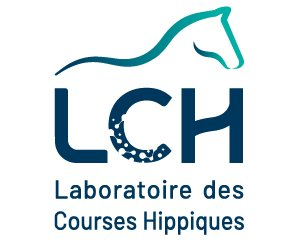
Chargé(e) de Recherche et Innovation (H/F) / Senior Scientist Research & Innovation (M/F)
Chemistry - BiochemistryConfirmed

